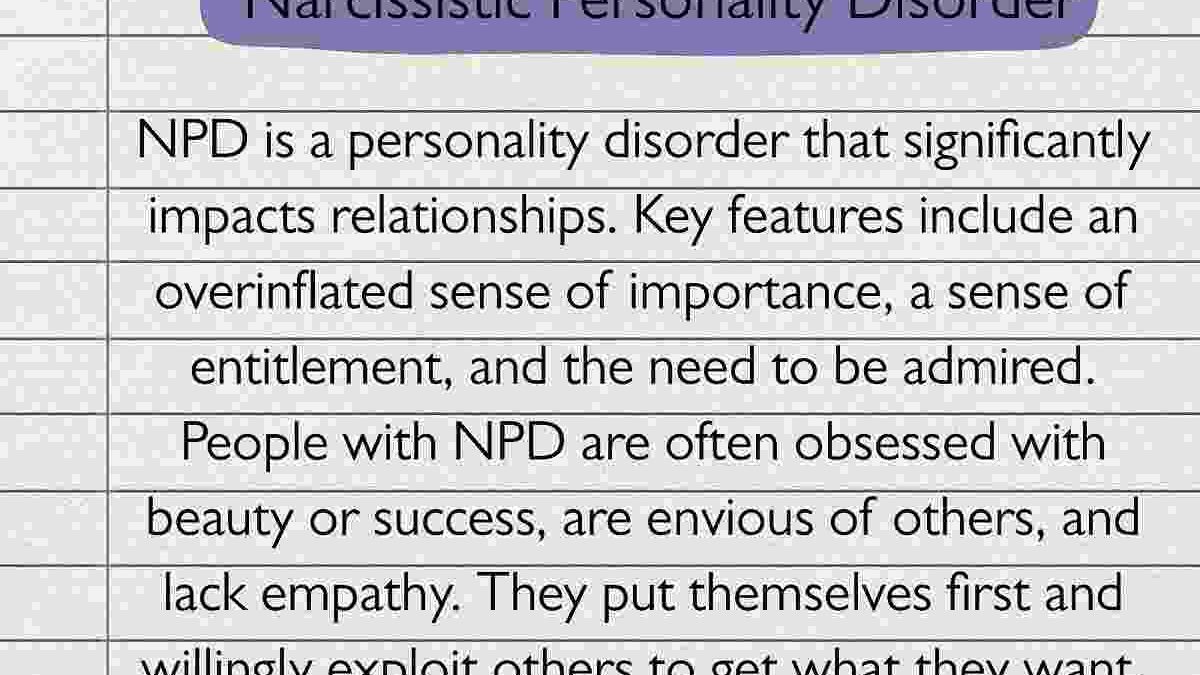Narcisista – The term “narcissism” is derived from the Greek myth of Narcissus, a young man who was so beautiful that he fell in love with his reflection. In psychology, narcissism refers to a personality disorder characterized by a grandiose sense of self-importance, a need for too much admiration, and a lack of sympathy for others.
Table of Contents
Introduction
Sigmund Freud was the first to introduce the concept of narcissism in his 1914 book, Introduction to Narcissism. Freud argued that narcissism is a normal developmental stage in early childhood when the infant’s love and attention are focused on the body. However, if this stage is not resolve, the individual may develop a narcissistic personality disorder.
About Narcissistic Personality Disorder
People with narcissistic personality disorder have a biased view of themselves and their importance. They may believe that they are superior to others, and they may demand constant admiration and attention. They may also be susceptible to criticism and may react with anger or rage if they do not get their way.
Narcissistic personality disorder can significantly impact an individual’s relationships, work, and social life. People with this disorder may have difficulty forming close relationships and be exploitative or manipulative of others. They may also be very successful in their careers, but they may not be able to maintain their success because of their interpersonal difficulties.
Few Signs And Symptoms
There is no one-size-fits-all action for narcissistic personality disorder, but therapy can be helpful. Therapy can help the individual to develop a more realistic view of themselves, and it can also help them to learn how to manage their emotions and relationships more healthily.
Here are some of the signs and symptoms of narcissistic personality disorder:
- Grandiose sense of self-importance
- Need for excessive admiration
- Lack of empathy for others
- Sense of entitlement
- Exploitative or manipulative behavior
- Arrogance
- A need to be the center of attention
- Difficulty accepting criticism
- Envy of others
- A sense of superiority
If you think you or someone you know may have narcissistic personality disorder, it is important to seek professional help. A therapist can help you to assess the situation and develop a treatment plan.
History of Narcisista
The concept of extreme selfishness has been recognized through history. The term “narcissism” is plagiaristic from the Greek tradition of Narcissus but was only devise at the local of the nineteenth century. Since then, narcissism has become a domestic word; in analytic writings, given the great preoccupation with the subject, the term is use more than almost any other.
The term “narcissism” comes from the Greek legend of Narcissus, a handsome young man who fell in love with his reflection in a pool of water. He was so entranced by what he saw that he waste away and died. The myth of Narcissus is a cautionary tale about the dangers of self-love and the importance of relationships with others.
The term “narcissism” was first used in a psychological context by Havelock Ellis in 1898. Ellis used the term to describe a condition in which people are excessively preoccupied with themselves and their own needs. He linked the condition to the myth of Narcissus, and argued that it was a form of arrested development.
Some Additional Information About Narcisista
In the early twentieth century, Sigmund Freud also wrote about narcissism. Freud argued that narcissism is a normal stage in child development but can become a problem if it persists into adulthood. He described two types of narcissism: primary narcissism, which is healthy self-love, and secondary narcissism, which is unhealthy self-absorption.
Moreover, In the latter half of the twentieth century, there was a growing interest in narcissism in psychology. This was due in part to the work of Heinz Kohut, who developed a theory of narcissistic personality disorder. Kohut argued that narcissistic personality disorder is a result of early childhood experiences and can treated through psychotherapy.
Key Events of Narcisista
Furthermore, narcissism is a widely recognize psychological disorder. About 1% of the population is estimate to have narcissistic personality disorder. And also Narcissism can have a significant impact on people’s lives, and it can be problematic to treat. However, with the right help, people with narcissistic personality disorder can learn to manage their signs and live fulfilling lives.
Here are some of the key events in the history of narcissism:
- 8 AD: The Roman poet Ovid writes the Metamorphoses, which includes the myth of Narcissus.
- 1898: Havelock Ellis coins the term “narcissism” in a psychological context.
- 1905: Sigmund Freud publishes Three Essays on the Theory of Sexuality, which includes a discussion of narcissism.
- 1971: Heinz Kohut develops a theory of narcissistic personality disorder.
- 1980: The American Psychiatric Association includes narcissistic behaviour disorder in the Diagnostic and Statistical Mental of Disorders (DSM-III).
- 2013: The DSM-5 is publish, which includes updates to the criteria for narcissistic personality disorder.

